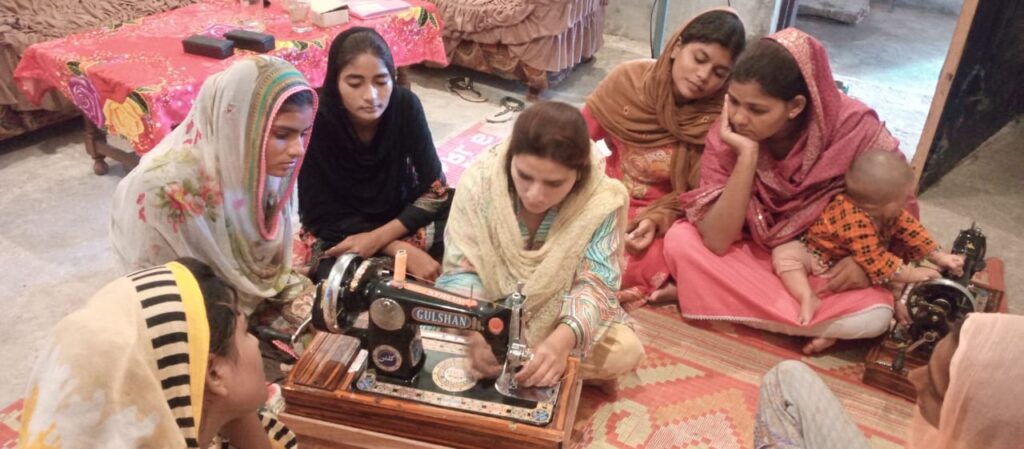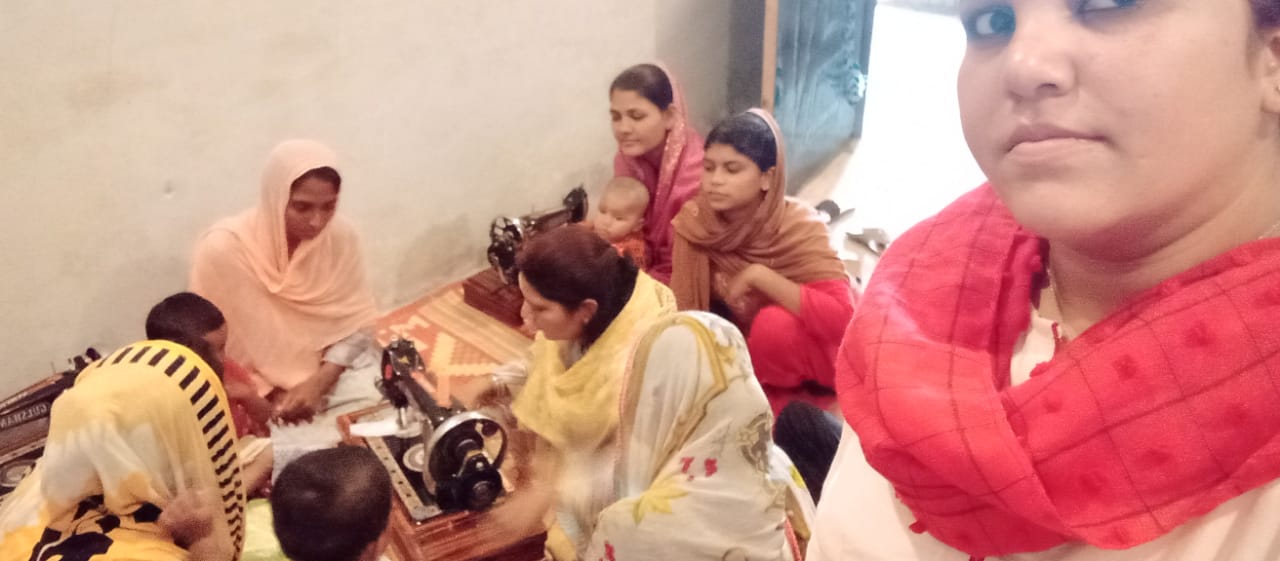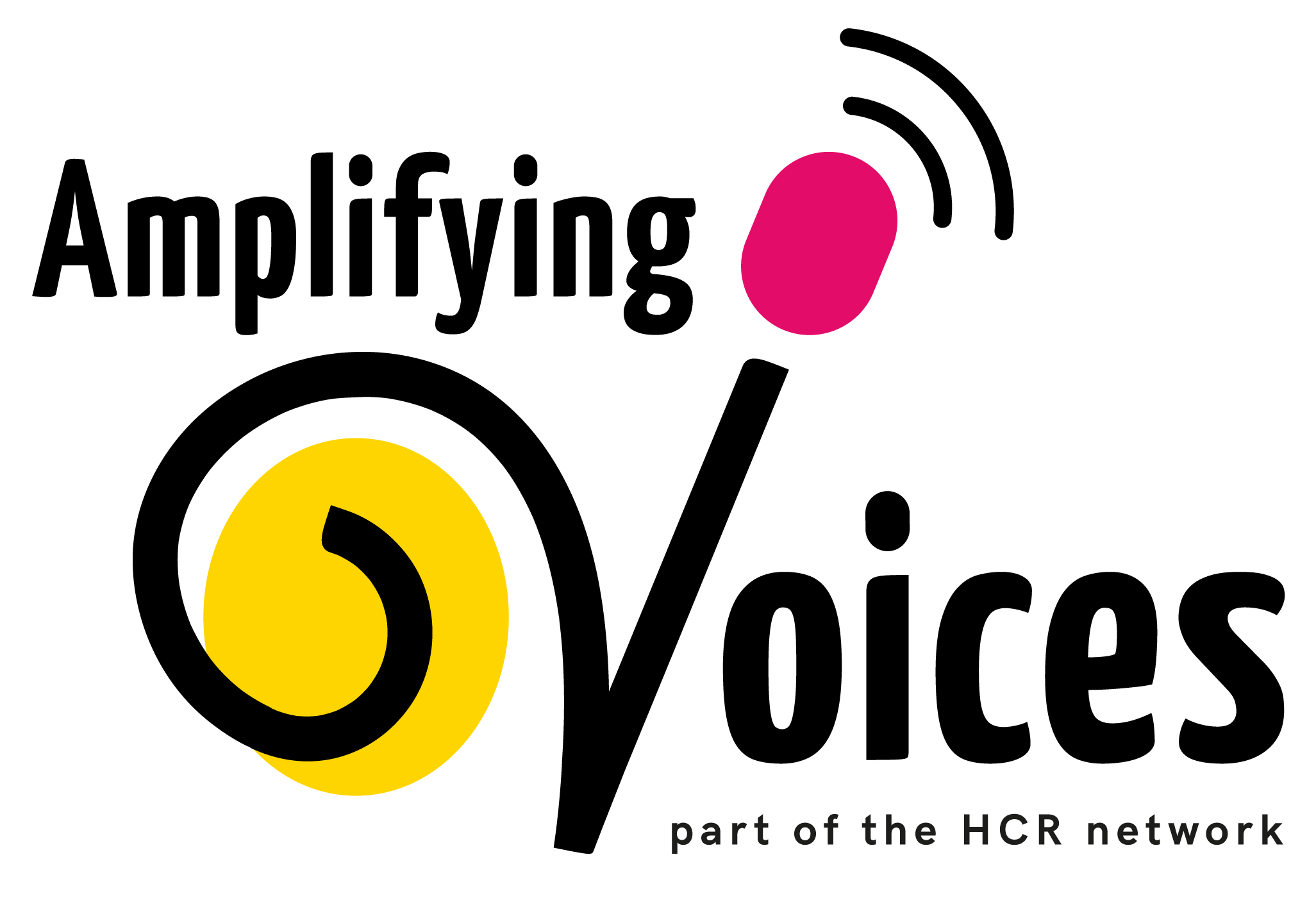
Vocational skills pave the way
This week, women from a minority community in Punjab started a series of workshops teaching sewing skills to other women and girls. At the end of the first day, participants and their relatives told the coordinator that they see this workshop as a launch pad to greater things.
One participant said that her sister is getting married and that she was very excited because she would be able to do all the sewing in preparation for the wedding.
The workshop is part of a vocational skills programme being piloted by Amplifying Voices Pakistan in several communites. The pilot is called Roshan Ghar in Punjabi, Rokhani Kor in Pashtu, and Bright Home in English. In communities such as this one near Sargodha in Punjab, there are not many opportunities for people from minority groups to complete education or to find employment. Those that do find work often end up in dangerous sanitation jobs, cleaning sewers and sorting rubbish. However, some women in the community who have had some education realised they could teach sewing skills to other women, who could then use those skills to support their household incomes.
Another two participants came with their father. He said he had six daughters, and that the cultural expectations for him to pay a dowry would make it impossible for him to support them getting married. But he was hopeful that this workshop would help his daughters gain skills to earn an income.
Hazeen from Amplifying Voices Pakistan told me why they have adopted this way of piloting vocational skills programmes linked to community-centred media. The idea for Rokhani Kor started in Khyberpakhtunkhwa province near Nowshera and was originally intended to be a series of radio programmes made by women, for women. The radio programmes would address access to education for girls and were linked to a separate project providing vocational training for young women.
However, Hazeen was also seeing the re-emergence of an issue that affects several projects. Despite initial enthusiasm it was difficult for women to stay involved in a media project on an ongoing basis. Some attended the initial media training but couldn’t contribute to regular programming because of cultural restrictions on travelling to communities or to a recording location.
While exploring options for the project near Sargodha, and hearing women saying they wanted opportunities to learn and become more employable, Hazeen proposed switching the Rokhani Kor/ Roshan Ghar concept around in order to address this issue in a culturally sensitive manner. The project would introduce vocational skills workshops first and build in media engagement along the way. Women could participate regularly in vocational classes in culturally acceptable meeting places where they could also listen to community-centred audio programmes together. Some could contribute through interviews or go on to do media training. This process builds awareness of the benefits of community-media. At the same time the wider community has a chance to see that Amplifying Voices Pakistan can be trusted, paving the way for women and girls to be more involved in media production.

Selfie-time at the first sewing class, Sargodha.
Setting up the Roshan Ghar workshop in Sargodha came out of listening to community members, hearing local concerns, and helping to identify the skills and resources that already exist in the community. Three women with skills and motivation offered to provide training to other women and young girls. The local partner found a suitable training room and a gift from an Australian media organisation, FEBC Australia, helped to buy sewing machines for the class.
Amplifying Voices encourage our partners to have these “strengths-based” conversations in any community they work with when starting a community-centred media project. This process of listening to what’s strong in a community can lead to inspiring on-air discussions about community members responding to challenges, and can encourage community members to put their skills to use in new off-air activities. With Roshan Ghar, it is the off-air activities, i.e. the vocational skills classes, that are paving the way for media conversations and inspiring people to reach for their dreams.
